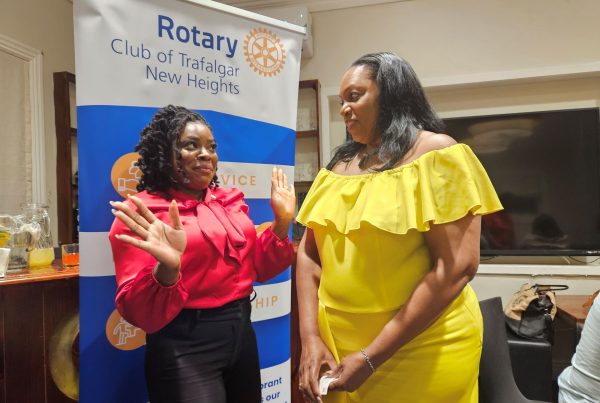
Gender and development advocate, Ruth Howard, says women are more vulnerable to old age poverty and, therefore, more needs to be done to protect them during their ‘golden years’, especially those working in the informal economy.
The gender and development specialist argues that women are several factors that leave women more vulnerable than men to old age poverty, such as the gender pay gap in many industries. She said in those cases, women earn less than men although they are doing the same work. Miss Howard pointed out that women also make up the majority of the lower categories of the workforce and so command less pay. She posited that this was one of the reasons for the retirement savings gap.
“The Jamaican dollar of today doesn’t carry the same value as the Jamaican dollar in the 1970s and ‘80s. So women living off already low pensions from contributions made during the ‘70s and ‘80s face a very real challenge of surviving with today’s rising inflation and sliding dollar,” she said.
“If we really want to help women be better prepared for retirement, then we need to address the issue of low pay for women. We have to stop undervaluing women’s work and pay them [equally] to their male counterparts,” she added.
Citing a Pension Industry Association of Jamaica (2022) Concept Paper on Auto Enrolment in Jamaica, Miss Howard pointed out that many women were also likely to have the burden of caring for their family members who are most vulnerable.
“Many households in Jamaica are female-headed, which means it is women who are supporting and providing for their families. That’s happening in a context where most of the care burden for children, the elderly, the disabled or the indigent falls on women. So we end up with a situation where these women’s already meagre resources are being stretched to take care of more dependents – meaning less money to contribute to pension savings, and also meaning less pension savings to cover the cost of living and the care roles that these women often continue to play well past retirement age,” she added.
Eighty-one-year-old Marva Hayes, a vendor who operates a stall in the Corporate Area points out that although she is past retirement, she still has to work because she is also responsible for two of her grandchildren and an older sister who is bedridden.
“As a vendor, I can’t think about retirement, and while I was younger the jobs I could get did not allow me to contribute to a pension scheme. I started selling ground provisions after I lost my job more than 20 years ago, and I have to continue working because I care for two of my grandchildren who lost their mother and I also have a sister who has no one and this makes it difficult for me,” she explained.
The Pension Industry Association of Jamaica (2022) Concept Paper on Auto Enrolment in Jamaica notes that because women live longer than men, they were more likely to be affected by old age poverty. The concept paper notes that women were 23 per cent less likely to have economic opportunities than men. It adds that women earned only 63 per cent of their male counterparts’ income despite doing the same job in many instances.
The paper states that the situation is exacerbated by the fact that more women leave tertiary institutions than men and are sometimes saddled with student loan debt. It notes that the situation has taken more significant since COVID-19 because many women are expected to stay-at-home caregivers. It adds that with many persons not having enough retirement savings, even more will be required to work beyond age 65.

Hugh Reid, General Manager, JN Life Insurance opines that auto enrolment can improve the circumstances of women in retirement.
“It will definitely go some way in protecting those who will be vulnerable, especially women from certain economic backgrounds. It will also reduce the burden on the state because as we know, the monthly payment from the National Insurance Scheme is not enough to provide for someone in their golden years and ultimately the state and taxpayers will be called on to fill any gaps. Therefore, we need to have a serious conversation about retirement planning,” he added.
Miss Howard points out that more behaviour change interventions were needed to assist women, especially those working in the informal economy to plan for retirement.
“We need well-designed financial education programmes that are tailored to addressing the very real needs and realities of our nation’s women, and which speaks their language, so they can understand,” she said.
“We also have to design retirement benefits in a way that does not disadvantage women and thus contribute to the financial inequity they’re already experiencing. That means identifying and addressing the factors that can disadvantage women, for example: ‘Does she lose contributions because she is on maternity leave?’ I also think it’s important to recognise and accommodate women who work in alternative economies, and to design eligibility criteria in a way that does not discriminate against them,” she added.





